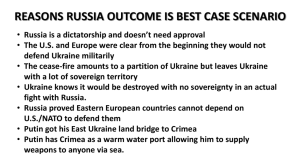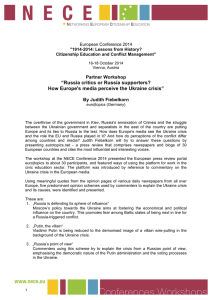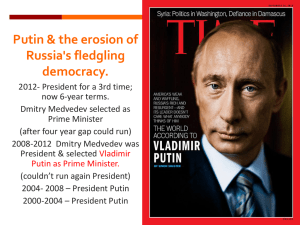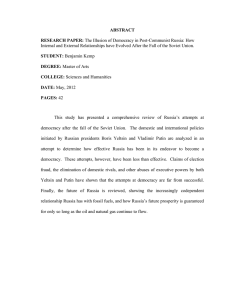Russia-Ukraine Conflict: Putin's Goals & European Security
advertisement
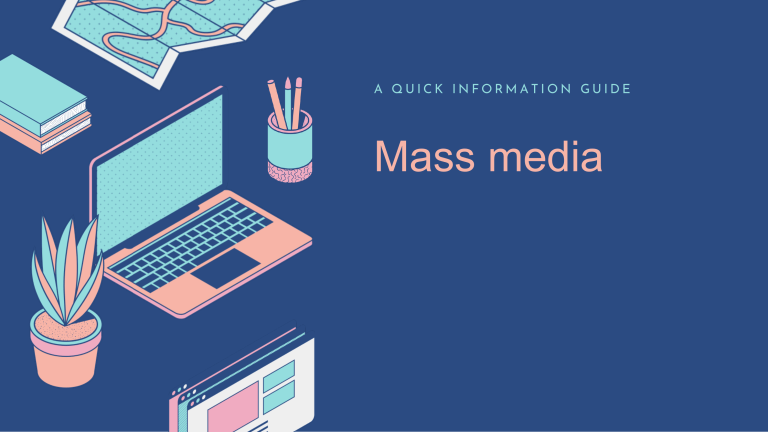
A QUICK INFORMATION GUIDE Mass media Agenda Why is Russia invading Ukraine and what does Putin want? By air, land, and sea, Russia has launched a devastating attack on Ukraine, a European democracy of 44 million people. Its forces are bombing city centres and closing in on the capital, Kyiv, prompting a mass exodus of refugees. For months, President Vladimir Putin denied he would invade his neighbour, but then he tore up a peace deal and unleashed what Germany calls "Putin's war", pouring forces into Ukraine's north, east and south. As the number of dead climbs, Russia's leader stands accused of shattering peace in Europe. What happens next could jeopardise the continent's entire security structure. Teaching and Learning with Technology In a pre-dawn TV address on 24 February, President Putin declared Russia could not feel "safe, develop and exist" because of what he claimed was a constant threat from modern Ukraine. Immediately, airports and military headquarters were attacked, then tanks and troops rolled in from Russia, Russianannexed Crimea and its ally Belarus. Now, warplanes have bombed major cities, and Russian forces have seized control of the key southern port city Kherson. Russia refuses to use the terms war or even invasion; many of its leader's justifications for it were false or irrational. He claimed his goal was to protect people subjected to bullying and genocide and aim for the "demilitarisation and de-Nazification" of Ukraine. There has been no genocide in Ukraine: it is a vibrant democracy, led by a president who is Jewish. "How could I be a Nazi?" said Volodymyr Zelensky, who likened Russia's onslaught toItem 4 Nazi Germany's invasion in World War Two.20% Ukraine's chief rabbi and the Auschwitz Item 5 20% President Putin has frequently accused Ukraine of being taken over by extremists, ever since its pro-Russian president, Viktor Yanukovych, was ousted in 2014 after months of protests against his rule. Russia then retaliated by seizing the southern region of Crimea and triggering a rebellion in the east, backing separatists who have fought Ukrainian forces in a war that has claimed 14,000 lives. Late in 2021, Russia began deploying big numbers of troops close to Ukraine's borders, while repeatedly denying it was going to attack. Then Mr Putin scrapped a 2015 peace deal for the east and recognised areas under rebel control as independent. Russia has long resisted Ukraine's move towards the European Union and the West's defensive military alliance, Nato. Announcing Russia's invasion, he accused Nato of threatening "our historic future as a nation". How far will Russia go? There is no immediate threat to Russia's Baltic neighbours, but Nato has bolstered their defences just in case. Ahead of the invasion, Russia's public focus was always on the areas held by Russian-backed rebels in the east. But that changed when President Putin recognised their independence. Not only did he make clear he saw them as no longer part of Ukraine, he revealed he backed their claims to far more Ukrainian territory. The self-styled people's republics cover little more than a third of the regions of Donetsk of Luhansk and the rebels covet the rest, How dangerous is this invasion for Europe? These are terrifying times for Ukrainians as bombs rain down on cities and civilians rush to Cold War-era bomb shelters. Thousands have died already in what German Chancellor Olaf Scholz has dubbed "Putin's war" - civilians as well as soldiers. Russia's onslaught has prompted hundreds of thousands of people to flee across Ukraine's borders. Poland, Hungary, Romania, Moldova and Slovakia are seeing a big influx, while the Russia's leader has even put his nuclear forces on high alert, days after threatening the West with "consequences the like of which you have never seen" if it stands in his way. What does Putin want? He has not only demanded that Ukraine never join Nato but that the alliance turns the clock back to 1997 and reverses its eastward expansion. He has complained Russia has "nowhere further to retreat to - do they think we'll just sit idly by?". He wants Nato to remove its forces and military infrastructure from member states that joined the alliance from 1997 and not to deploy "strike weapons near Russia's borders". That means Central Europe, Eastern Last year, President Putin wrote a long piece describing Russians and Ukrainians as "one nation", and he has described the collapse of the Soviet Union in December 1991 as the "disintegration of historical Russia Thanks for watching
